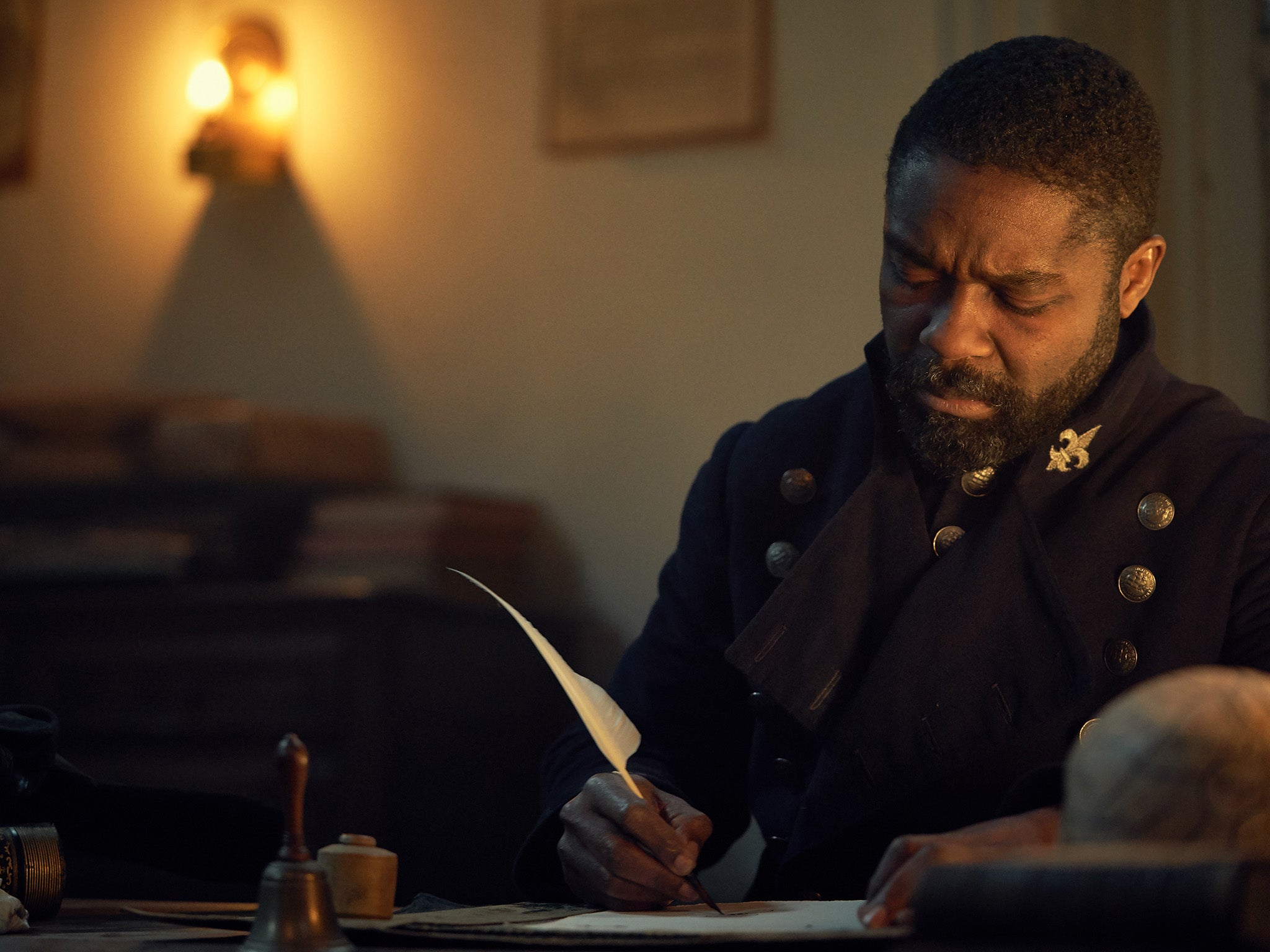Les Misérables, episode five review: A violent revolution makes this episode come to life
There are spectacular aerial shots of rebels pouring through the streets of Paris, as the mounted cavalry, in scenes that echo last year’s Mike Leigh drama ‘Peterloo’, ride around slashing at protestors

Your support helps us to tell the story
From reproductive rights to climate change to Big Tech, The Independent is on the ground when the story is developing. Whether it's investigating the financials of Elon Musk's pro-Trump PAC or producing our latest documentary, 'The A Word', which shines a light on the American women fighting for reproductive rights, we know how important it is to parse out the facts from the messaging.
At such a critical moment in US history, we need reporters on the ground. Your donation allows us to keep sending journalists to speak to both sides of the story.
The Independent is trusted by Americans across the entire political spectrum. And unlike many other quality news outlets, we choose not to lock Americans out of our reporting and analysis with paywalls. We believe quality journalism should be available to everyone, paid for by those who can afford it.
Your support makes all the difference.In a West End musical, it’s easy enough to be charmed by the love of two people who’ve barely exchanged more than a dozen words. But in the context of a complex, slow-burning drama such as this, the BBC’s six-part adaptation of Victor Hugo’s Les Misérables (BBC1), it’s a lot harder. Particularly when there’s a bloody revolution going on.
Said love birds are Cosette (Ellie Bamber) – the teenage ward of our escaped convict hero Jean Valjean (Dominic West) – and Marius (Josh O’Connor), the young royalist turned revolutionary. Blind to the affections of Éponine Thénardier (Erin Kellyman), Marius has been obsessed with Cosette since he first stalked her around the Luxembourg Gardens in last week’s episode. The feeling’s mutual. Having grown up in a female-only convent, this is basically the first man (aside from her adopted father) Cosette has met. When they meet again, a clandestine encounter away from Valjean’s fearful eye, she literally swoons.
In a series that so masterfully explores the concept of morality, redemption and rehabilitation, as well as the messy nuances of human relationships, Marius and Cosette’s “love” feels one-dimensional. They don’t have enough time together to muster up any chemistry, Bamber is hemmed in by a dainty, thinly-written role, and even Josh O’Connor – so brittle and brooding in God’s Own Country – can’t inject much life into their romance. Lines such as, “I’ve lost everything, my life is over”, pronounced by Marius after Valjean and Cosette flee, elicit little more than an eye roll.
Inspector Javert, meanwhile, is also a man obsessed – his obsession rapidly transforming into an all-consuming mania. Looking increasingly pallid and unwell, he is determined to catch Valjean, who he tortured in prison for 19 years and who has subsequently eluded capture for a decade. “We’ve got worker groups openly discussing violent revolution,” an officer tells him, exasperated. “Three illegal arms factories unearthed this week.” Javert, played with unravelling, paranoid desperation by David Oyelowo, barely hears him. “He is here. He has been in Paris all this time, laughing at us. Well this time, he will not get away.”

He should have listened to his colleague. It’s not long before violent revolution erupts, at the funeral of politician Jean Maximillien Lamarque. It is here that the episode comes to life. There are spectacular aerial shots of rebels pouring through the streets of Paris, as the mounted cavalry, in scenes that echo last year’s Mike Leigh drama Peterloo, ride around slashing at protestors. Javert makes an unconvincing attempt to join the rebels in disguise, nonchalantly inquiring as to Valjean’s whereabouts, and quickly finds himself tied up.
Marius – whose life, if you’ll remember, is over – eventually turns up to lend a hand. He saves little Gavroche (Reece Yates), the neglected son of the Thénardiers, before he in turn is saved by Éponine. “What are you doing here?” he asks, after she jumps in front of a bullet for him. “Thank you” might have been more appropriate, but the dying Éponine doesn’t seem to mind. “I really did love you,” she says, handing him a letter from Cosette. This love, at least, we can believe in. Her death is all the more affecting for it.
As it heads towards its sixth and final episode, there is still plenty to admire in Les Misérables. But when an escaped convict and his pursuer share more chemistry than two star-crossed lovers, something’s gone awry.
Join our commenting forum
Join thought-provoking conversations, follow other Independent readers and see their replies
Comments